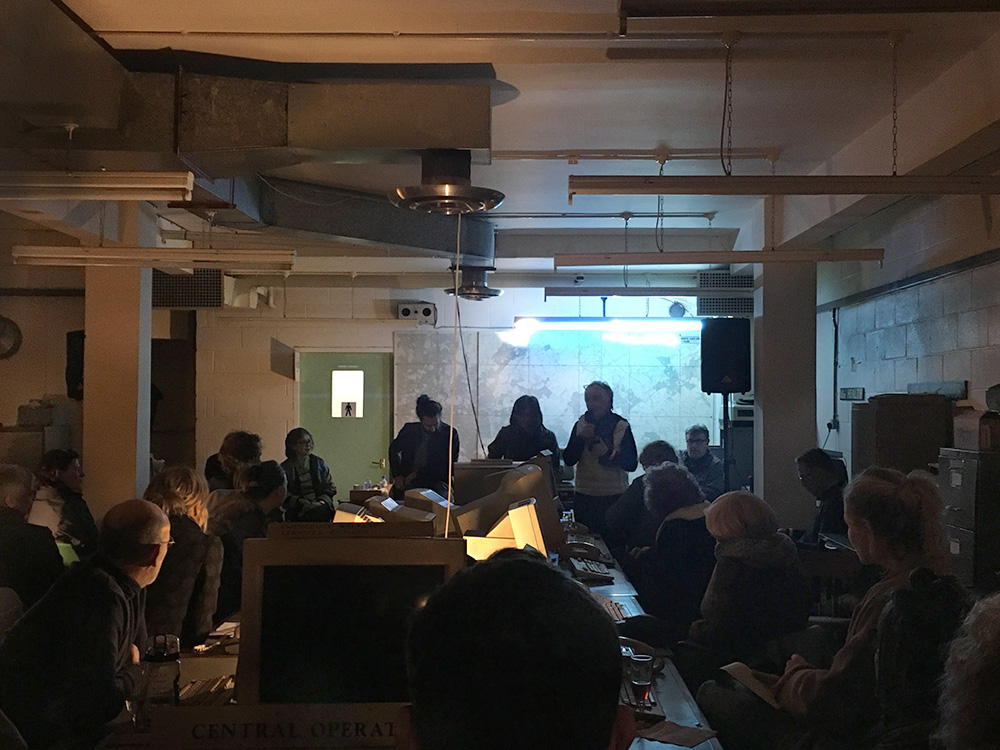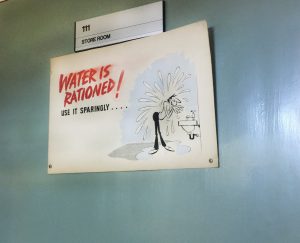Index relies entirely on the support of donors and readers to do its work.
Help us keep amplifying censored voices today.
[vc_row][vc_column][vc_single_image image=”100734″ img_size=”full”][vc_column_text]Index on Censorship has named writer and broadcaster Trevor Phillips as its new chair. Phillips succeeds journalist David Aaronovitch whose five-year term ends in September.
Phillips is a writer and television producer. He currently works between the US and the UK, serving as chairman of New York-based think-tank, the Center for Talent Innovation and as president of the council of the John Lewis Partnership. A former chair of the UK’s Equality and Human Rights Commission, Phillips is currently writing a prequel to his successful book Windrush.
“Trevor believes passionately in argument, debate and free expression. He’s not afraid of expressing a view and he’s not afraid of others expressing theirs. He’s a great fit for Index,” said current chair David Aaronovitch.
Previous chairs of Index include the broadcasters Anna Ford and Jonathan Dimbleby.
In the past five years, Aaronovitch has played an active role in debates on the value of free expression, especially in the wake of events such as Charlie Hebdo, and overseen the recruitment of a new chief executive, former Reuters London Bureau Chief Jodie Ginsberg. During his tenure, the organisation has transformed its annual Freedom of Expression Awards into a year-long fellowship programme, and introduced new flagship projects, including training for UK arts organisations on the law and free speech and a European media freedom monitoring project.
“David brought calm humour and good sense to the board and organisation at a time filled with difficult attacks on both the concept of free expression and on those who dare to exercise their precious rights,” board member David Schlesinger said.
Phillips will take over as chair in September as the organisation prepares to increase its work both in the United States and in coverage of issues of censorship online.
“At a time when the world is beset by conflict, and in many cases repression, the case for diversity of voices globally could not be plainer,” said Phillips. “The advent of new technologies has made it more possible for those voices to be heard; but both governments and non-state actors have redoubled their efforts to silence their opponents.”
He added: “For many, the last freedom that will be left is the ability to tell the truth as they see it. Courageous journalists, writers and campaigners are the front line troops in the battle to protect our understanding and insight of what is taking place; and all too many are paying the price in the loss of their own freedoms, and of their own lives. Those of us who enjoy freedom can do more than wring our hands – we can take practical steps to support those who face the threat of being silenced.”
“Index is the premier organisation backing the voices standing up for free expression, and I feel privileged to be asked to succeed my friend David Aaronovitch as chair, and to support the work of Index’s outstanding team.”
For more information, please contact [email protected][/vc_column_text][/vc_column][/vc_row][vc_row][vc_column][vc_column_text]About Trevor Phillips
Born in London in 1953, Trevor Phillips was educated in London and in Georgetown, Guyana, and studied chemistry at Imperial College London. Between 1978 and 1980, he was president of The National Union of Students.
He joined London Weekend Television as a researcher, rising to become Head of Current Affairs, before leaving to found Pepper Productions. He has been a Vice-President of the Royal Television Society since 2000. His most recent films include Things We Won’t Say About Race That Are True and Has Political Correctness Gone Mad?.
Trevor retains an active interest in the arts and music and is a board member of the Barbican Arts Centre and of Headlong Theatre. His other voluntary activities include serving as a board member of the Social Mobility Foundation, and of the Employers Network for Equality and Inclusion. He chairs the WEA, a charity providing over 150,000 hours of adult education each year.
[/vc_column_text][/vc_column][/vc_row][vc_row][vc_column][vc_column_text]About Index
Index on Censorship is a UK-based nonprofit that campaigns against censorship and promotes free expression worldwide. Founded in 1972, Index has published some of the world’s leading writers and artists in its award-winning quarterly magazine, including Nadine Gordimer, Mario Vargas Llosa, Samuel Beckett and Kurt Vonnegut. Index promotes debate, monitors threats to free speech and supports individuals through its annual awards and fellowship program.[/vc_column_text][/vc_column][/vc_row][vc_row][vc_column][vc_basic_grid post_type=”post” max_items=”12″ style=”load-more” items_per_page=”4″ element_width=”6″ grid_id=”vc_gid:1528726171148-fc3ce605-f7a7-5″][/vc_column][/vc_row]
[vc_row][vc_column][vc_column_text]
“We must distinguish the things that are intellectually dishonest and aimed at persuading, which is traditionally called propaganda, and the things where people are trying to give you general information, which doesn’t have the absolute intention of persuading you,” said The Times columnist David Aaronovitch at a panel at the Essex Book Festival.
Aaronovitch, also Index’s chair, was discussing the role of propaganda with leading expert on the darknet and technology Jamie Bartlett and Chinese-British author Xinran, who was the first woman to have a late-night radio show in China.

The panel, chaired by Index on Censorship magazine editor Rachael Jolley, was part of the festival’s Nuclear Option day at the Kelvedon Hatch Secret Nuclear Bunker, a twisted network of dimly lit hallways and musty rooms that lie beneath a field.
Around 75 attendees gathered on March 25 to listen to Index’s panel and attend other workshops, screenings and performances part of the festival. Everyone at the festival was free to roam the enormous bunker and walk amongst Cold War history.
Passing signs that instructed people to “use water sparingly” and dusty machines that co-ordinated evacuation procedures, attendees eventually made their way to a desk-lamp lit room and were seated at long desks with old, monochrome computers.
Looking at the current state of propaganda, Bartlett said “everything has become more emotional and gut-driven,” adding that politics has not become as informed as people had hoped, but now become “heuristic because people are just showered with information”.
Aaronovitch called the inundation of information the “age of cacophony”.
What is emerging, according to Bartlett, is a “horrible new form of soft surveillance that has encouraged a great conformity among people”.
Xinran said China’s current propaganda, especially on social media, along with party control of education and the legal system has led to “one voice” in China, despite age gaps, class, education and geographical residence.

The author talked about her past experiences with censorship and Chinese propaganda when she worked on her radio show in China. She explained that there was a list of restrictions she had to abide by, these included never mentioning the British media, Western religions or love and relationships. The author said during her show she was able to tackle subjects that were previously taboos on Chinese radio.
“My work was stopped for three months when I spoke about homosexuality,” said Xinran. “This type of censorship was very strong until 1997, but it has now escalated to constant censorship, due to social media.”
Looking at the future of propaganda and its direction, Bartlett added that he can “see much more reliance on coercive digital types of surveillance being absolutely necessary just to maintain some type of law and order in society, especially online, which could make us a much more authoritarian society”.
This led Bartlett to predict that “already authoritarian countries are going to become much more so, and already very free countries are going to become even more free to the point where it might collapse”.
He believes we are shifting to a “Huxleyan society,” which Aaronovitch called the “algorithmic society”. Both felt one big question was, who governs the algorithms?
Aaronovitch noted that it depended on who was controlling the algorithms, saying that if the EU requested that Google to reveal its algorithms, it would be problematic; however, governmental algorithms used for policing in a democratic society were essential.
With reference to the Cambridge Analytica scandal, which was mentioned numerous times during the panel, Bartlett noted that the worry over “Cambridge Analytica’s 5,000 data points on every single American doesn’t compare to what’s coming”.
“We are going to be creating a lot more data in the future,” said Bartlett. “And it is going to be shared and it is going to be used by political actors.”
Aaronovitch advised the audience that the best way to combat propaganda is to ask yourself, “‘Am I wrong?’. The point is to ensure no one is “completely blinded by initial preferences”.
Similar to Aaronovitch’s warning to predisposed biases, Xinran calls for “independent thinking,” and equated the consumption of information with eating.
“In Chinese we say you become what you eat,” said Xinran. “And your brain is the same way. You become what you are by what you believe”.
Love @EssexBookFest for concocting a 12-hour event in a secret nuclear bunker – blown away by the peace & propaganda panel with @IndexCensorship & a wild Gogol’s Silent Disco with gherkins & Estonian vodka! Will now be sleeping forever. pic.twitter.com/6B8kGwz5Uw
— Miranda Cichy (@mirazc) 25 March 2018
Hats off to @EssexBookFest! An incredible day at the Secret Nuclear Bunker. Brilliant discussion with @IndexCensorship, @JamieJBartlett, @DAaronovitch, @londoninsider and #Xinran, topped off with a silent disco of music banned from Estonia, with obligatory gherkins and vodka 👍 pic.twitter.com/HVtfrVDRb1 — Radical ESSEX (@RadicalEssex) 26 March 2018
So interesting to visit the secret bunker @khsnb @EssexBookFest today, fascinating @IndexCensorship session on propaganda pic.twitter.com/zY7EITOCfj — Namita E Chakrabarty (@DrNChakrabarty) 25 March 2018
Fantastic @EssexBookFest event at the Secret Nuclear Bunker with a timely discussion about propaganda @JamieJBartlett @DAaronovitch @londoninsider & Xinran. It was also a real privilege to hear Nicky Winder read her award-winning short story Bait – such a talent! — Sarah Roberts (@sarahrroberts) 25 March 2018
[/vc_column_text][/vc_column][/vc_row][vc_row][vc_column][vc_basic_grid post_type=”post” max_items=”4″ element_width=”6″ grid_id=”vc_gid:1522237614911-7109bbff-bdcf-1″ taxonomies=”2631″][/vc_column][/vc_row]
[vc_row][vc_column][vc_column_text]Index on Censorship has launched a campaign to raise £15,000 to help us document growing threats to media freedom.
Times columnist and Index chair David Aaronovitch kicked off the campaign by writing to supporters following the murder in Slovakia of Jan Kuciak, a journalist investigating links between organised crime and politics: “This happened not in a war zone, not in a dictatorship, but in an EU member state.”
Aaronovitch said that when he became chair of Index on Censorship five years ago, he was naïve: “Back then I thought that, in the West at least, the idea of freedom of speech and expression was largely a fought and won battle.”
In the time that Aaronovitch has been chair of Index, media freedom around the world has come under increasing pressure, including in Europe and neighbouring states. In the past six months alone, journalists in Turkey have received life sentences just for doing their job. In Malta, journalist Daphne Caruana Galizia was murdered for exposing corruption. [/vc_column_text][/vc_column][/vc_row][vc_row][vc_column width=”1/4″][vc_icon icon_fontawesome=”fa fa-times” color=”black” background_style=”rounded” size=”xl” align=”right”][/vc_column][vc_column width=”3/4″][vc_column_text]
[/vc_column_text][/vc_column][/vc_row][vc_row][vc_column][vc_column_text]Despite this, there have been inspiring people fighting back even the face of difficult and dangerous circumstances, he added.
To continue to support media freedom in the challenging times ahead, Index needs your help.
A donation of £20 ensures a verified attack against media freedom is mapped publicly online; a gift of £100 enables an official report to pressure governments; a gift of £1000 supports extensive fieldwork to identify and confirm reported violations.
The goal is to raise at least £15,000 by the end of March to map attacks over the next six months and demand governments to do more to stop them.
You can read the full letter from David Aaronovitch here.[/vc_column_text][/vc_column][/vc_row]
Last week, Jan Kuciak, a journalist investigating links between organised crime and politics, was shot dead – along with his fiancée. This happened not in a war zone, not in a dictatorship, but in Slovakia: an EU member state.
When I became chair of Index on Censorship five years ago, I was naïve.
Back then I thought that, in the West at least, the idea of freedom of speech and expression was largely a fought and won battle, and that internationally the Force was with us.
I’ve learned a lot in that half decade. I’ve seen great gains in countries such as Turkey thrown into sharp reverse, with life sentences for journalists just doing their job. I’ve seen not just the murder of Kuciak, but also the killing of an investigative journalist in Malta for exposing corruption. I’ve seen cartoonists gunned down in their office in a European capital city and then blamed for their own murders.
I’ve realised how easily we can suggest that we’re for freedom of expression from one corner of our mouths, yet espouse limiting such expression from the other.
But I’ve also witnessed the fight-back against such restrictive mentalities and outlooks. I’ve met the most inspiring people working in the most difficult and dangerous of circumstances, and been able to offer succour and resources.
I’ve been a small part of the argument for free speech and expression which Index never, ever stops making.
You can help make it too. To continue to do this effectively in the challenging times ahead, we need your help.
A donation of £20 ensures a verified attack against media freedom is mapped publicly online; a gift of £100 enables an official report to pressure governments; a gift of £1000 supports extensive fieldwork to identify and confirm reported violations.
Our goal is to raise at least £15,000 by the end of March to map attacks over the next six months and demand governments to do more to stop them.
I hope you will join me in supporting Index and your right to a free press. Please donate today.
Yours ever,
David Aaronovitch